
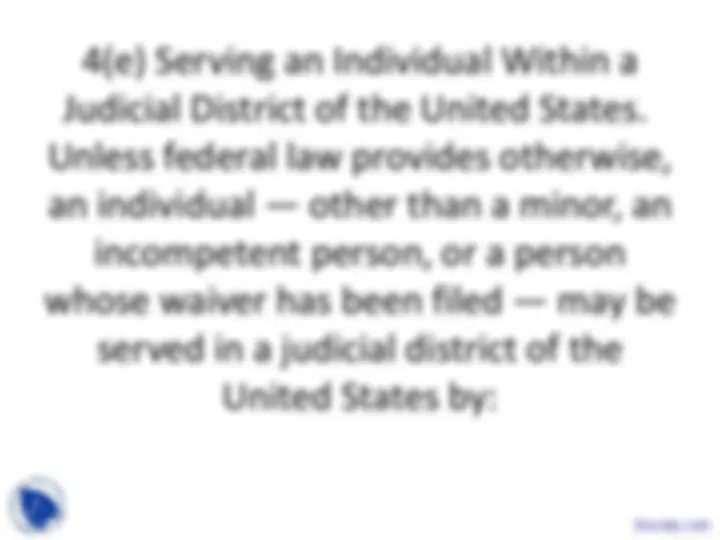
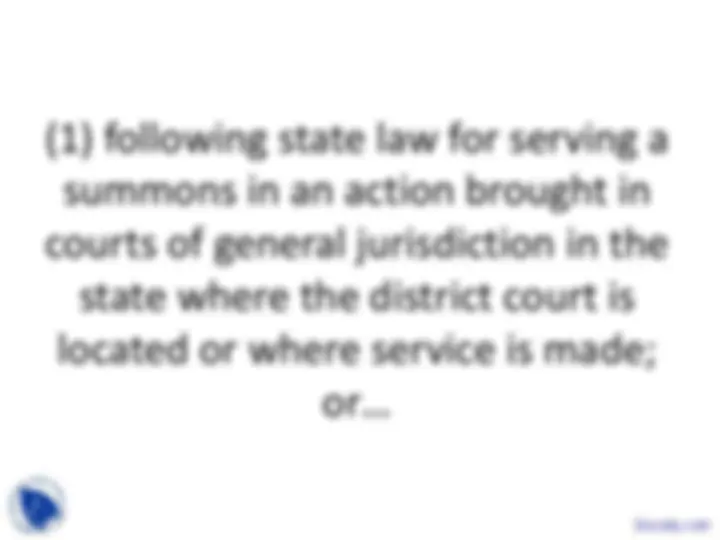

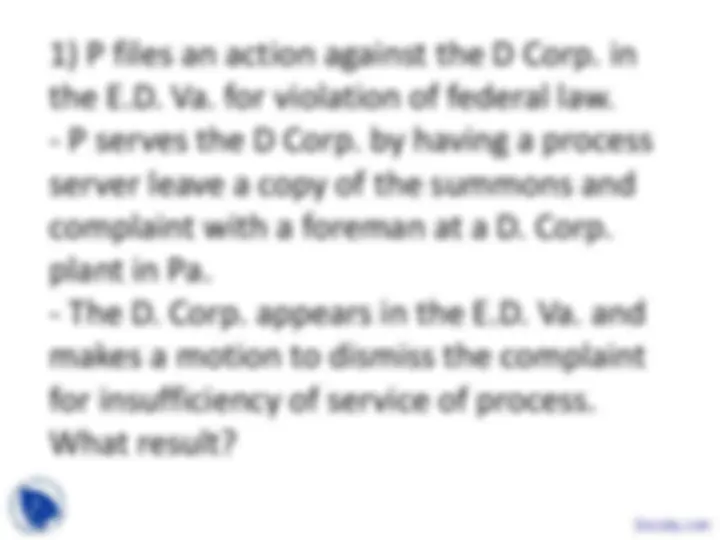




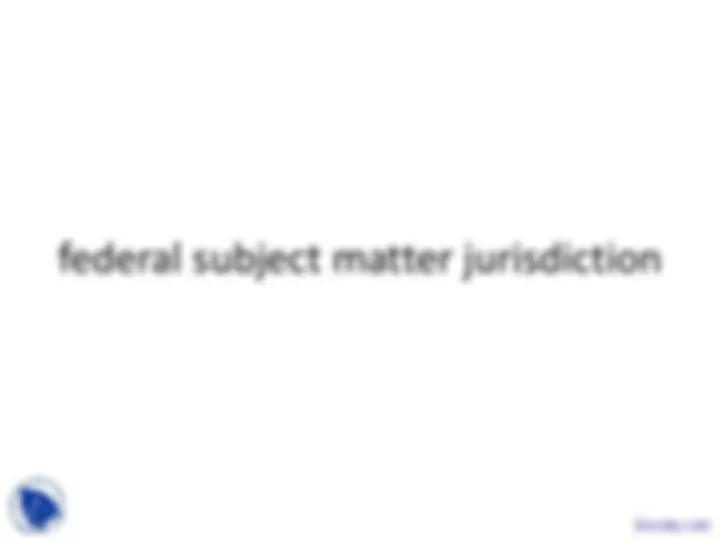
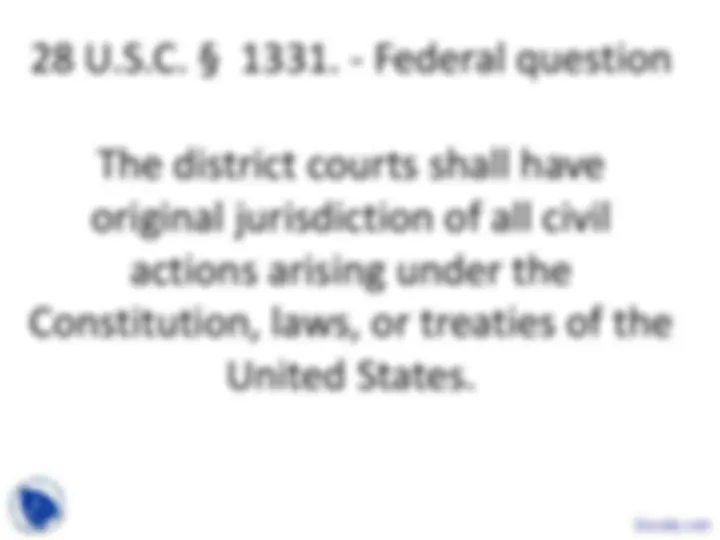



Study with the several resources on Docsity

Earn points by helping other students or get them with a premium plan


Prepare for your exams
Study with the several resources on Docsity

Earn points to download
Earn points by helping other students or get them with a premium plan
Community
Ask the community for help and clear up your study doubts
Discover the best universities in your country according to Docsity users
Free resources
Download our free guides on studying techniques, anxiety management strategies, and thesis advice from Docsity tutors
Information on serving legal documents, including individuals and corporations, in accordance with us laws and constitutional restrictions. It covers the methods of service, constitutional requirements, and specific cases.
Typology: Slides
1 / 19

This page cannot be seen from the preview
Don't miss anything!












(2) doing any of the following: (A) delivering a copy of the summons and of the complaint to the individual personally; (B) leaving a copy of each at the individual’s dwelling or usual place of abode with someone of suitable age and discretion who resides there; or (C) delivering a copy of each to an agent authorized by appointment or by law to receive service of process. Docsity.com
(h) Serving a Corporation, Partnership, or Association. …must be served: (1) in a judicial district of the United States: (A) in the manner prescribed by Rule 4(e)(1) for serving an individual; or (B) by delivering a copy of the summons and of the complaint to an officer, a managing or general agent, or any other agent authorized by appointment or by law to receive service of process and — if the agent is one authorized by statute and the statute so requires — by also mailing a copy of each to the defendant...
U.S. Const. Amendment V. No person shall... be deprived of life, liberty, or property, without due process of law...
Amendment XIV. Section 1.
... No State shall make or enforce any law which shall abridge the privileges or immunities of citizens of the United States; nor shall any State deprive any person of life, liberty, or property, without due process of law; nor deny to any person within its jurisdiction the equal protection of the laws.
“An elementary and fundamental requirement of due process in any proceeding which is to be accorded finality is notice reasonably calculated, under all the circumstances, to apprise interested parties of the pendency of the action and afford them an opportunity to present their objections.”
U.S. Const. Article III. Section. 2.
The judicial Power shall extend to all Cases, in Law and Equity, arising under this Constitution, the Laws of the United States, and Treaties made, or which shall be made, under their Authority…